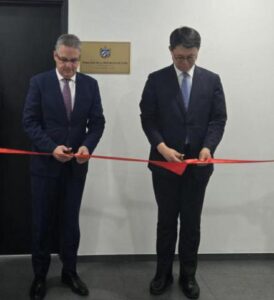The trade union movement looked inward at the grassroots and workplace level to reach a consensus in plenary that the local economy can be transformed for the good of all, according to the debate at the Municipal Conference in Bolivia, the first to be held in the province of Ciego de Avila, as part of the 22nd Congress of the Cuban Workers’ Central (CTC).
The organisation is certain of this because a recurring concern is the distribution of profits, a process that does not benefit those who contribute the most in all places, but is no longer a complaint today in the Agro-industrial Company, the one with the greatest economic impact in this territory in the northeast of Avila, where its workers have overcome the obstacles of structural changes to achieve productive and wage dividends.

Maximiliano del Sol Pequero, a trade unionist from this organisation, exemplified that the fruits taste better without ripener, thanks to a form of payment of income minus expenses and the new structural system known as the labour collective, with less personnel directly in the furrow, but with a greater sense of belonging or ownership and the possibility of handling the monetary wealth that they themselves pay for with their own sweat.
Although Mayra González García, a worker in the Poder Popular Municipal, is not involved in agriculture on a daily basis, the union leader knows very well the gaps in the distribution of profits – one of the main dissatisfactions according to the report analysed at the meeting – which she described as «threats because not everyone knows what loss and profit are, so some administrations do not give the correct destination to the profits created, and so the worker feels pushed, not driven to contribute more».
Perhaps the lack of motivation is one of the main causes of the economic losses in the Food-Based Business Units, Commerce, Valle Grande, La Pequeña, La 21 and Mamey, amounting to more than 724 million pesos, a situation that is compounded by the non-compliance with seven indicators related, fundamentally, to food production.
Nevertheless, as a small municipality in terms of size and a large one in terms of socio-economic potential, Bolivia can be a reference for the country in terms of trade union functioning, considered Leobanys Ávila Góngora, member of the CTC National Secretariat, at the conference, which was ratified by Yudelkys Barroso Escobar, general secretary of the Municipal Committee, which has 99.5% of active worker membership.




